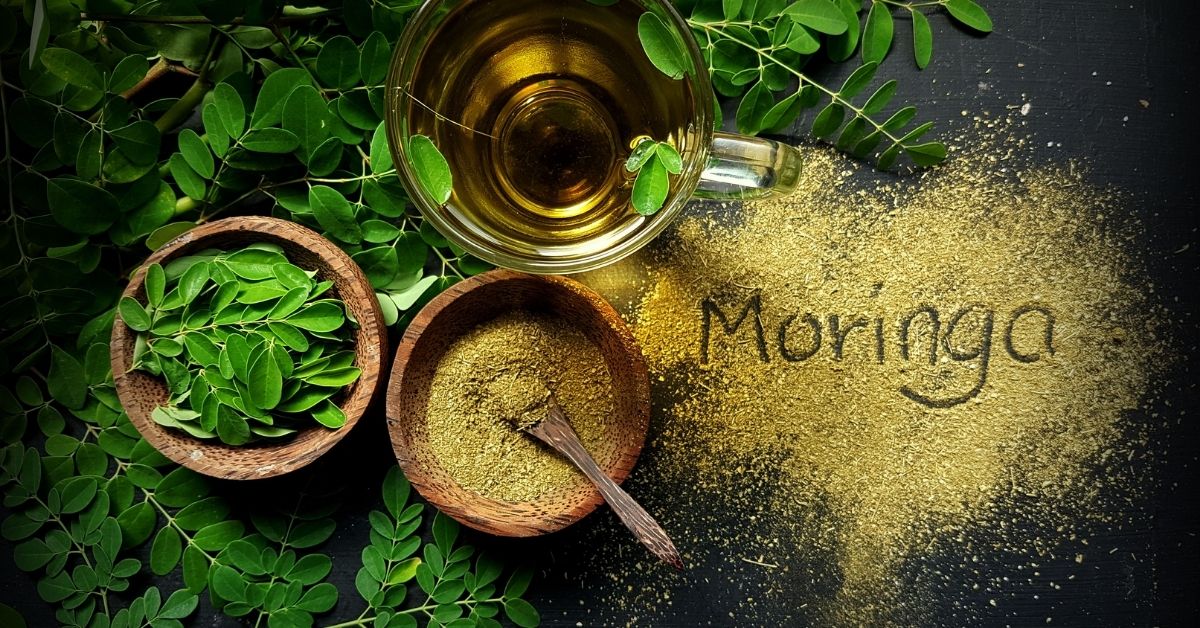Introduction
Murungai Maram (முருங்கை மரம்), also known as the Moringa Tree or Sigru in Ayurveda, has rightly earned the global title “Miracle Tree”. Traditionally found in the backyards of southern Indian households, this humble garden tree is now recognised worldwide, available in forms such as capsules, teas, and powders even on UK shelves at stores like Holland & Barrett.
From ancient Ayurvedic drug to modern-day moringa is gaining more popularity. It’s said that Fidel Castro himself turned to moringa leaves during a period of illness to regain his strength and vitality, and he became a fervent advocate for its use. He believed in the plant’s power so much that he saw it as a key to improving the health and nutrition of his entire country.
Modern days nutritionists are praising moringa, even calling it a natural multivitamin due to its incredible nutrient density. The leaves are packed with remarkable antioxidants and a wealth of essential nutrients, including fiber, potassium, phosphorus, calcium, iron, and a complete source of plant-based proteins.
This powerful combination of vitamins and minerals is why moringa is trusted to support a healthy immune system, boost natural energy levels, and promote long-term well-being.
Ayurveda Medicinal Properties of Sigru
- Parts Used: Leaves, bark, roots, seeds, and flowers are all utilized in Ayurvedic practice.
- Taste (Rasa): It has a pungent and bitter taste.
- Qualities (Guna): Its qualities are light, sharp, and dry.
- Potency (Virya): It has a hot potency.
- Post-Digestive Effect (Vipaka): The post-digestive effect is pungent (Katu).
- Krimighna: Used to treat and eliminate worm infestations.
- Svedopaga: Aids in inducing sweating, a key preparatory procedure in Panchakarma detoxification therapy.
- Shirovirechanopaga: Employed in Nasya, a Panchakarma treatment involving nasal administration to cleanse the head and sinus passages.
- Katuka Skandha: Characterized by a pungent taste, which helps to stimulate digestion and clear blockages.
These properties make Sigru highly effective in balancing the Kapha and Vata doshas. However, due to its hot and pungent nature, it can sometimes aggravate Pitta, and therefore should be used with caution by individuals with a Pitta constitution.
Nutritional Information of Moringa leaves
Moringa leaves are a nutritional powerhouse.
- Calories: 92 kcal
- Protein: 6.7 g
- Fat: 1.7 g
- Carbohydrates: 12.5 g
- Fibre: 0.9 g
- Calcium: 440 mg
- Iron: 0.85 mg
- Magnesium: 42 mg
- Phosphorus: 70 mg
- Potassium: 259 mg
- Vitamin A (Carotene): 6.78 mg
- Vitamin C: 220 mg
- Zinc: 0.16 mg
- Copper: 0.07 mg
Key Amino Acids:
Moringa leaves provide a rich spectrum of essential amino acids including arginine, histidine, isoleucine, leucine, lysine, methionine, phenylalanine, threonine, tryptophan, and valine that support every vital process in the body, from boosting immunity and promoting muscle repair to enhancing brain function, mental health, and overall metabolic balance.
- Fibre – supports digestion and gut health
- Protein Powerhouse – plant based essential for all age group for muscle, bone strength, hormones and for weight management
- Iron – prevents anaemia
- Potassium – maintains heart and muscle function
- Calcium & Phosphorus – essential for bone health
- Vitamin A & C – immunity and skin support
- Antioxidants – reduce oxidative stress and promote longevity
Health Benefits of Moringa
- Boosts immunity and Best Antioxidant
- Promotes cardiac health and helps regulate cholesterol
- Useful in weight management and reducing fat accumulation
- Supports hormonal balance in both women and men
- Enhances fertility and reproductive health
- Rich in iron – helps combat anaemia
- Assists in managing diabetes, blood pressure, and cholesterol
- Supports kidney health and natural detoxification
- Beneficial in arthritis, fractures, and bone pain (also applied as a paste on affected areas)
- Reduces inflammation and fights bacterial and viral infections
- Helps protect against arsenic toxicity
- Anti aging – Supports healthy skin and hair due to its antioxidant and vitamin-rich profile
Why Moringa is Called Miracle Tree
Moringa, often known as the “Miracle Tree”, has earned its name worldwide for its extraordinary nutritional and healing properties. Its high antioxidant content and anti-inflammatory nature have attracted attention in the Western world, as they help protect against chronic diseases, support cognitive function, and promote overall wellness. Minerals like phosphorus contribute to bone strength and energy metabolism, while its fiber and protein content aid in weight management. This unique combination of nutrients, antioxidants, and healing compounds has made Moringa a sought-after plant for modern nutrition and holistic health practices globally. Notably, the United Nations has recognized Moringa’s nutritional value, particularly for pregnant and breastfeeding women, highlighting its role in combating malnutrition and promoting maternal health.
In my practice, I have observed visible results when Moringa if it is used regularly for anemia, persistent pain, inflammation, joint pain, backpain, Spinal cord issues. Also for inflammation of major organs like the heart, liver, kidney, spleen, and pancreas continued intake over just one week often brings noticeable relief. I have also prescribed Moringa topically for fractures and localized pain, as well as instilled it for eye infections given remarkable improvements. For women, it acts as a detoxifier, purifying the uterus, enhancing hormonal balance, and acts as prenatal pill supporting fertility, while for men it can improve reproductive health. Additionally, it helps in weight loss, cold, cough, asthma, and infections, often prepared as a morning tea or daily drink at home. Regular use supports longevity, boosts immunity, and enhances overall health truly demonstrating why it is celebrated as a miracle tree in both traditional and modern practices.
Latest Research on Moringa
- Proven for its anti-inflammatory and antioxidant properties
- Supports blood sugar regulation in Type 2 diabetes
- Exhibits potential anti-cancer effects in laboratory studies
- Promotes liver and kidney protection
- Recognised as a natural cholesterol-lowering agent
Precautions and Dosage
Though Moringa is highly nutritious and beneficial, it may not be suitable for everyone. Always understand your body and consult a healthcare professional before starting any supplement, especially if you are pregnant or taking chronic medication.
- Moringa can increase pitta and is not recommended for individuals with aggravated pitta or a tendency to heat-related issues, such as acidity, skin rashes, diarrhoea, heartburn, or a sensitive stomach.
- If you have diabetes, high blood pressure, or high cholesterol, monitor your intake carefully and consult your doctor.
- Individuals with kidney stones or those on dialysis should avoid Moringa supplements.
- Avoid excessive consumption, particularly at night, as it disturbs digestion.
- To reduce heat and balance pitta when cooking or consuming Moringa, it is beneficial to combine it with ghee or cumin (jeera), but some people add spices like soup which is not advisable.
Conclusion
“முருங்கை சாப்பிட்டால் மூன்று நூறு நோய் குணமாகும்” (Murungai saappittaal moondru nooru noi gunamaagum) – if you eat Moringa, 300 diseases can be cured. Moringa rightly called the “Miracle Tree,” can be included in your diet to experience its miraculous benefits for immunity, mental health, metabolism, and overall vitality. While its benefits are extraordinary, it is best consumed thoughtfully, with proper guidance, to harness its full potential safely and effectively.






